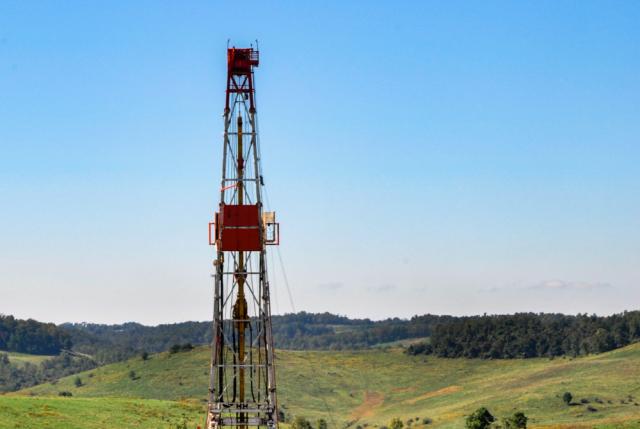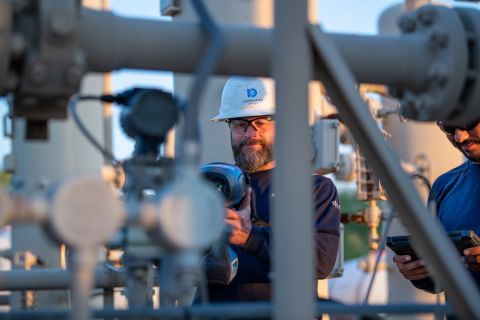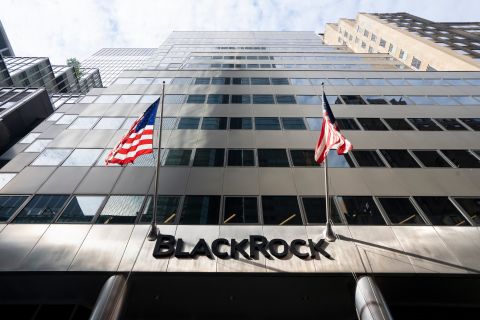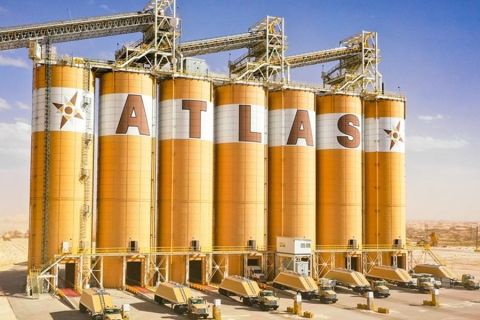
In addition to EQT, the alliance formed on Feb. 3 includes Equinor, GE Gas Power, Marathon Petroleum, Mitsubishi Power, Shell Polymers and U. S. Steel. (Source: Hart Energy)
EQT Corp. on Feb. 3 joined an alliance of companies across sectors aiming to develop a low-carbon and hydrogen industrial hub in the northern Appalachian region of the U.S.
The newly formed alliance will work with stakeholders to establish a hub in Ohio, Pennsylvania and West Virginia to not only decarbonize the industrial base in the northern Appalachian region but also be a national model for sustainable energy and production systems, according to a joint release.
“We look forward to working with other industry leaders to support the development of one or multiple low-carbon energy hubs in North Appalachia,” Rob Wingo, executive vice president, corporate ventures, at EQT, commented in the release.
EQT is an independent natural gas production company focused in the cores of the Marcellus and Utica shales plays in the Appalachian Basin. The Pittsburgh-based company claims to be the largest producer in the U.S. of natural gas, which Toby Rice, EQT’s president and CEO, said late last year could help the world decarbonize more quickly.
“The facts are clear. U.S. LNG powered by the Marcellus Shale is the biggest green initiative on the planet,” Rice told attendees of Hart Energy’s DUG East conference in Pittsburgh in December. “We shouldn’t be thinking about cutting down LNG exports, we should be thinking about doing more.”
RELATED:
US Shale Gas Could Become ‘Biggest Green Initiative on Planet,’ EQT CEO Says
EQT has operations in Pennsylvania, West Virginia and Ohio and, as of year-end 2020, held over 1 million gross acres and about 19.8 Tcfe of proved reserves.
In addition to EQT, the alliance formed on Feb. 3 includes Equinor, GE Gas Power, Marathon Petroleum, Mitsubishi Power, Shell Polymers and U. S. Steel. The group’s shared vision of the hub concept will include carbon capture, utilization and storage (CCUS), as well as hydrogen production and utilization.
“Our region has an abundant source of low-cost, low emissions-intensive natural gas which can be converted to low-carbon fuels and used to reduce our country’s carbon footprint,” Wingo added in his statement in the release. “At EQT, we see a significant opportunity to expand beyond our existing business by leveraging this advantage to develop low-carbon fuel production and CCUS opportunities.”
Effective implementation of the industrial hub and its associated infrastructure development could generate thousands of new jobs, protect current jobs and help achieve significant reductions in CO₂ emissions, according to the release.
“The creation of this hub could contribute to a more sustainable energy future for what is already a very advantaged region in terms of human and natural resources,” commented Hilary Mercer, senior vice president of Shell Polymers Pennsylvania Chemicals.
Shell is building a world-scale petrochemical plant, located thirty miles northwest of Pittsburgh in Monaca, Pa. The plant will take ethane from the Marcellus and Utica fields and convert it into polyethylene, the building block of plastic.
“As we march towards finishing the construction of our world-scale petrochemical plant in Monaca, Pennsylvania, we are excited to be in on the ground floor of this tri-state project that could help us reach our net-zero carbon emission ambitions,” Mercer also said.
Shell aims to become a net-zero greenhouse gas emissions company by 2050. As part of its target, the company has also said it plans to grow spending on renewables and low-carbon energy to between $2 billion and $3 billion per year in the near term, which is roughly 10%-15% of its overall spending budget.
Recommended Reading
Keeping it Tight: Diversified Energy Clamps Down on Methane Emissions
2024-04-24 - Diversified Energy wants to educate on emission reduction successes while debunking junk science.
Darbonne: The ESG Sword: BlackRock's Life, Death by ESG
2024-04-17 - BlackRock, the $10 trillion investment manager, is getting heat for too much ESG investing, while shareholders are complaining it’s doing too little.
Fire Closes Atlas Energy’s Kermit, Texas Mining Facility
2024-04-15 - Atlas Energy Solutions said no injuries were reported and the closing of the mine would not affect services to the company’s Permian Basin customers.
Coalition Launches Decarbonization Program in Major US Cities, Counties
2024-04-11 - A national coalition will start decarbonization efforts in nine U.S. cities and counties following a federal award of $20 billion “green bank” grants.
Exclusive: Scepter CEO: Methane Emissions Detection Saves on Cost
2024-04-08 - Methane emissions detection saves on cost and "can pay for itself," Scepter CEO Phillip Father says in this Hart Energy exclusive interview.





